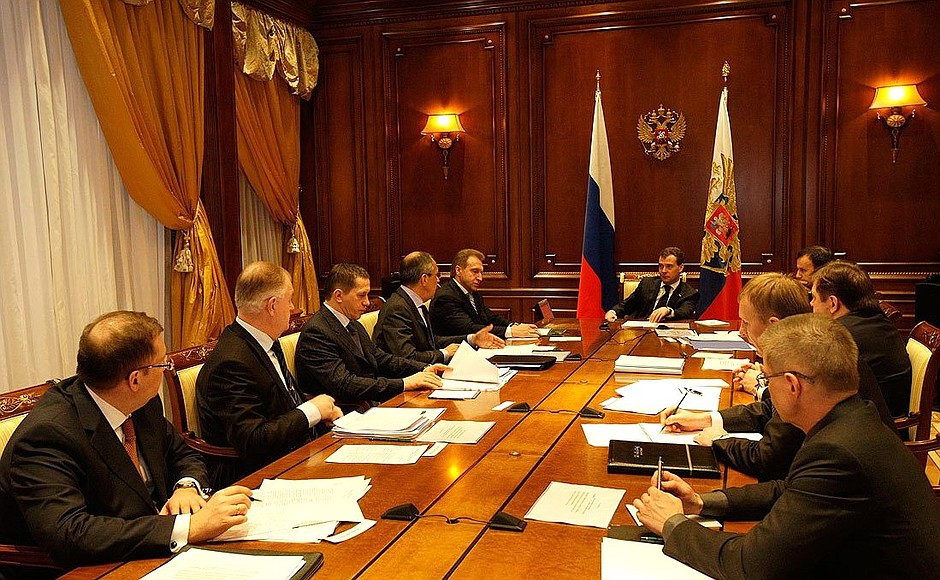The President urged meeting participants to learn the lessons from the poor outcome of Copenhagen Climate Change Conference in December 2009, which failed to reach consensus on a global, legally binding agreement for the period after 2012. Only a political document, the Copenhagen Agreement, was approved.
The failure of the conference is not a reason to bow our heads, Dmitry Medvedev said. Increasing energy efficiency, lowering emissions, and introducing new technologies must occur regardless of whether an international agreement to this effect exists; the President emphasized that these processes benefit Russia in both economic and environmental terms.
Appropriate decisions should be taken by the Government Cabinet, but rely on business. Mr Medvedev used the example of a project to extract methane from coal seams that he recently observed in the Kemerovo Region, as evidence of a modern and environmentally efficient technology.
According to the President, the achievement of long-term goals will be facilitated by the Climate Doctrine he approved at the end of last year. At the same time, Mr Medvedev noted that the document should be a live one that can be modified in light of cooperation with other countries and Russia’s position on post-2012 commitments.
Participants discussed how to most effectively use what has already been achieved, including the modest results of the Copenhagen Conference, how to further build relationships with key global players in the climate field, as well as the best ways to help less developed countries combat climate threats.

